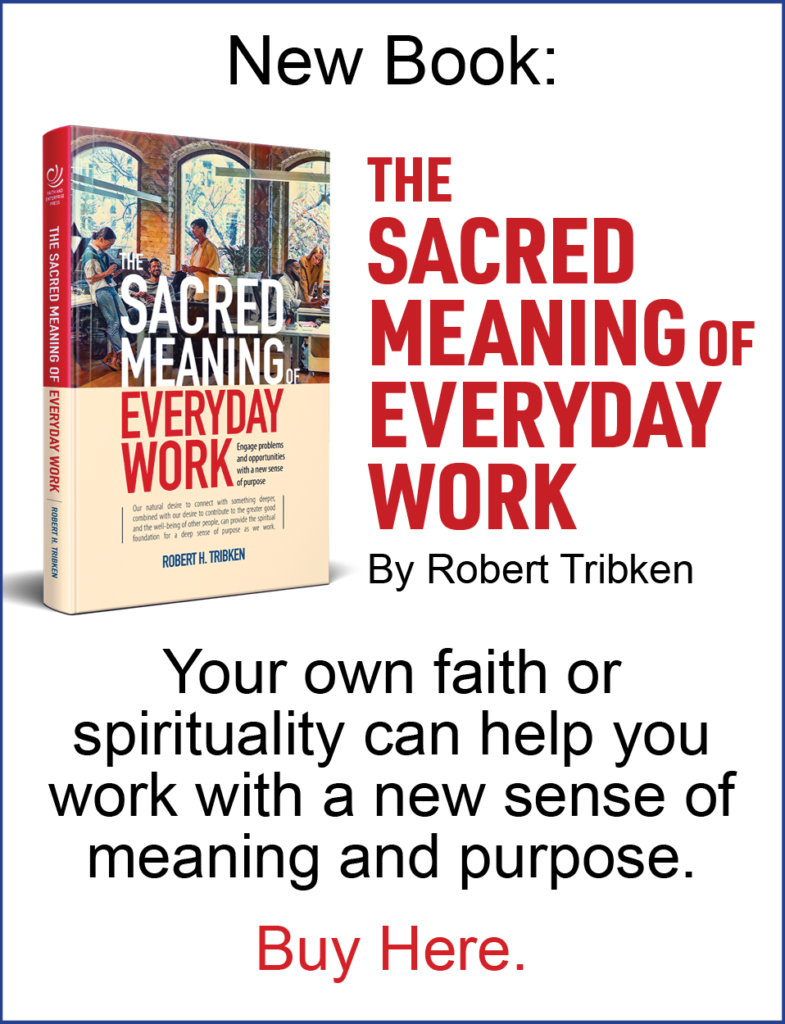Podcast Transcript September 26, 2017
Leisure and the Sabbath
Most of us know that it can be quite beneficial to periodically take off time from work and from our responsibilities. But many of us, myself included, are not very good at this.
Recently I have been taking a new look at the idea of the Sabbath, the biblical idea of taking one day of rest each week. I’ve come to the conclusion that the Sabbath can be a great gift for us, a day of rest and refreshment. A day when we can recharge and replenish. A day that might even lead us into the rhythm of a richer, fuller life.
The bible is full of references to the Sabbath. In the first creation story in the book of Genesis, God works for six days and then rests on the seventh day. The book of Exodus picks up on this idea in Chapter 20 and uses this as the basis for the weekly Sabbath. In the book of Deuteronomy and in particular Chapter 5 the emphasis changes a bit. The Sabbath is still a day of rest but here it commemorates the story of God saving the people from slavery and giving them freedom.
The Sabbath begins as a gift but over time it seems to become a collection of rules specifying in detail what we can and cannot do on that day. Rather than a time of rest, it seems to become an obligation designed to show religious obedience. In some settings the penalty for violating the Sabbath can even be death by stoning.But Jesus saw it differently and tried to restore the gift.
Listen to the story from the gospel according to Mark, chapter 2 verses 23 to 28:
“One Sabbath Jesus was going through the grain fields and as they made their way his disciples began to pluck heads of grain. The pharoses said to him, “Look, why are they doing what is not lawful on the Sabbath?” And Jesus said to them, “Have you never read what David did when he and his companions were hungry and in need of food? He entered the house of God when Beanathar was high priest and ate the bread of the presence which is not lawful for any but the priests to eat. And David gave some to his companions.” Then Jesus said to them, “The Sabbath was made for humankind not humankind for the Sabbath so the son of man as lord is even of the Sabbath.”
This is the key point. The Sabbath was made for humans, humans were not made for the Sabbath. It should be received as a gift not a set of obligatory rules and requirements. It is given to us for rest and refreshment and to make our lives better. It is a day when we do not have to accomplish anything. We can just be. And this can help us to settle down and become more aware of God and reality and who we really are.
The Sabbath should be a day of leisure and to truly engage in and enjoy leisure we need to let go of our work and our responsibilities and maybe even have some fun as we relax and allow our emotional state to rebalance. In other words as we let go of the stress there seems to be a process of replenishment of recharging that takes place below the surface.
Some things that can keep us from enjoying these benefits even if we are willing and able to take the day off. Despite our best intentions we can still be preoccupied with work, worried about a problem or anticipating the work that needs to be done or the issues that need to be faced when we go back to work. We can find ourselves continuously ruminating about our work and this can make it very difficult to break free of our preoccupation. This is especially true if we endure a high level of stress or time pressures such that we are not able to finish the work that needs to be done before resting.
In addition to these factors some of us just naturally have more trouble letting go of work. This just seems to be the way some of us are designed. To get the full benefit of leisure on our Sabbath we need to be able to detach from our work and find some relaxation. And there are several things that can help.
For some of us it is difficult to just do nothing. If we’re not engaged in something of interest then our minds turn back to our work. In this case it can help to find a leisure activity that interests us, one that draws us in. Some psychologists who work in this field talk about fascination. A leisure activity that fascinates us is one that captures our interest and does so naturally without an effort on our part to willfully direct our attention towards it.
Enjoying friendly relationships can help us relax and become more engaged. But so can the freedom to act on our own volition spontaneously without having to seek the approval or cooperation of others. I think it’s also a good idea to avoid tightly scheduling our leisure time if we can.
Researchers Gabriella Tonietto and Saline Malcoach provide evidence that leisure activities that are too tightly scheduled can feel too much like work. And that they therefore might not provide the full benefit of leisure. They advocate for what they call rough scheduling. With rough scheduling we can know that we are going to engage in a particular leisure activity and might even look forward to it. But the scheduling start and end times are flexible, maybe even a bit spontaneous. That way we are not restricted by a schedule and the leisure activity feels less like work.
This point about scheduling can be a problem for people who are busy with family or social obligations and who feel compelled to schedule their leisure time fairly tightly in order to meet their non work obligations. Maybe we need to find a way to keep the Sabbath not just from our work but from other obligations as well. That is if we are able to do so.
If through the Sabbath our personal resources are indeed replenished then when we return to work we are likely to be stronger, more energetic, and more engaged. And of course this helps us be more productive and resilient.
I’d also like to encourage the leaders of organizations to promote the idea of a Sabbath for employees. Not only is it the right thing to do but if the members of an organization are able to return to work refreshed and ready to engage then the entire organization benefits.
If you are in a position to influence the policies of your organization or perhaps your department then I recommend you take a look at what is keeping your coworkers fully enjoying their time off. Is it the always on email? The enormous time pressures or the stress caused by uncertainty? Whatever it is if you can start to reduce these factors you might find that productivity goes up rather than down. And people will be happier.
I’m convinced that if we can take some time off each week and really let go of our work and our obligations we’ll find that the Sabbath is a great gift to us and that it can help us move towards a richer, fuller, less stressful life.
I recommend that you think about the next Sunday or whatever day is your next day off and think about what you can do to make it a day of rest and refreshment. What would it take for you to actually have a Sabbath that you can enjoy? And then go do it.

